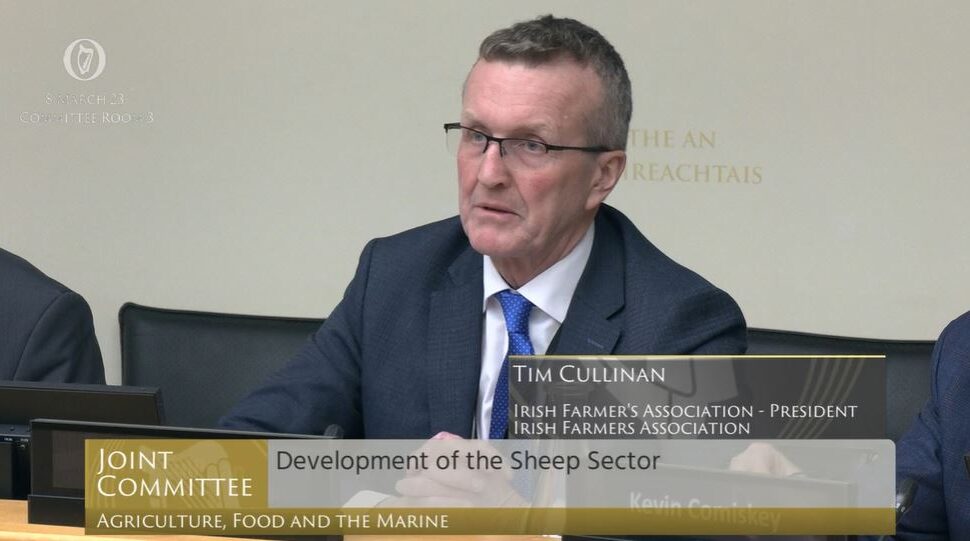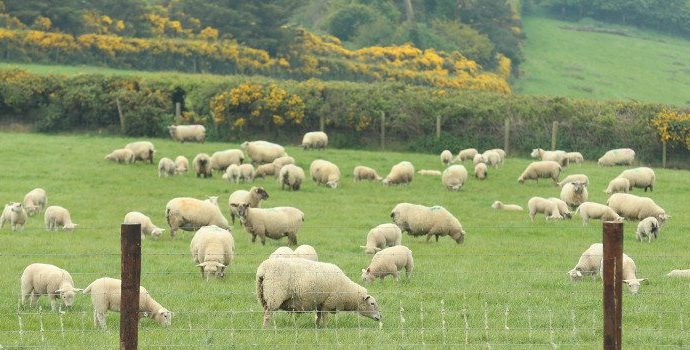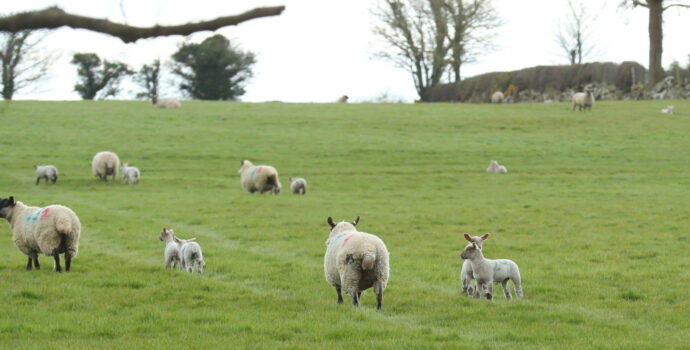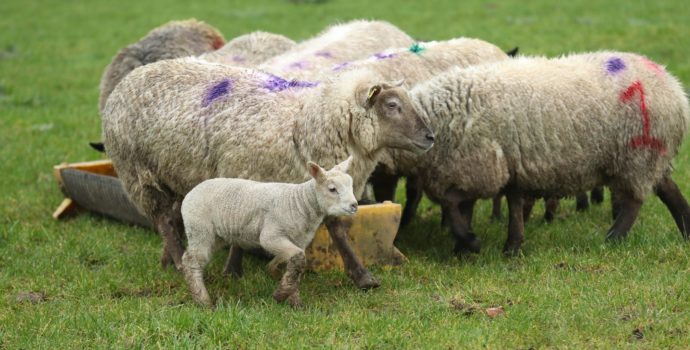Govt Support Needed to Address Income Crisis on Sheep Farms

Addressing the Joint Oireachtas Committee on Agriculture this evening, IFA President Tim Cullinan said the challenging income situation on sheep farms is a major deterrent to new entrants to the sector.
In 2022, gross margins on sheep farms decreased by 14%, with net margins dropping 81% to just €7/ewe. This included the Sheep Welfare Scheme payment.
“Direct supports for sheep farmers must be increased to €30/ewe to encourage generational renewal and ensure the economic viability of existing sheep farmers,” he said.
For 2023, Teagasc forecasts that feed concentrates are projected to increase by 10%, with no weakening of fertilizer prices which have increased by 195% on 2021 levels. The full submission is here.
IFA Sheep Committee Chair Kevin Comiskey said the crisis can only be alleviated by immediate direct supports from Government.
The Food Vision Beef and Sheep group has a Terms of Reference to deliver on the objectives of Food Vision 2030. Within this, there are several issues that must be resolved/addressed and delivered on for the sheep sector.
These include:
- More market price transparency of prices paid weekly;
- The provision of an Export Benchmark Price tracker for lamb;
- Imported live lambs and sheep meat in carcase form and its impact on prices Irish farmers receive;
- Labelling of sheep meat and the controls in place.
On shearing, Kevin Comiskey said it costs approx. €8 to present a 3kg fleece rolled and packed on a farm. This is costing farmers over €21m annually.
“The current costs associated with shearing and the little, if any, return to farmers for their wool, does not provide any incentive for farmers to take the additional time in packing and presenting wool.
Shearing costs must be directly supported to incentivise farmers carrying out this vital health and welfare measure and to ensure wool is presented in optimum condition for future added value use,” he said.
Kevin Comiskey said Government inaction on dog control is very frustrating for sheep farmers.
“We are hearing some positive soundings in this area from Government, but the problem has gone on for far too long. There must be real and meaningful action and we need it now. IFA has consistently set out our demands in this area,” he said.
We must have:
- A single National Database for all dogs corelating licensing and microchipping and identifying the person responsible for the dog but at a minimum alignment of the existing licensing and microchipping records to one central access point.
- Full enforcement of microchipping and licensing obligations of dog owners for all dogs.
- Stronger powers of enforcement for dog wardens and Gardaí and clarity of these powers.
- Increased on the spot fines for failing to comply with the microchipping and licensing requirements.
- Increased sanctions and on the spot fines for failing to have the dog under control.
- Significant on the spot fines for dogs found worrying livestock.
- Legal requirement for dogs to be microchipped and licensed and identified on the NVPS (National Veterinary Prescribing System) prior to any veterinary treatment or prescribing of medicines by veterinary practitioners.
- Authority to apply the legislative obligations to dogs in border regions owned by persons not resident in the state.




